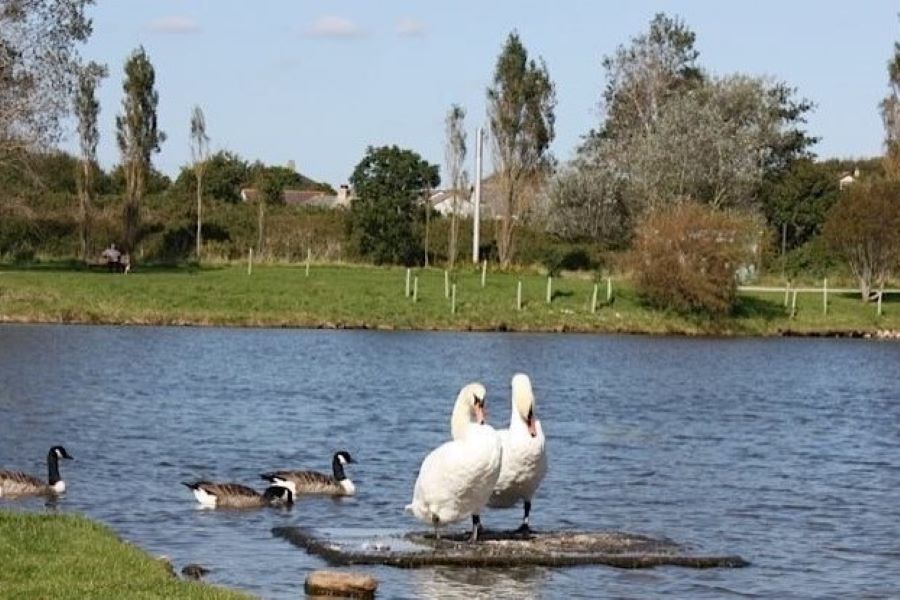In the longer term it might be possible to revert the Lake to a freshwater ecosystem. This would require the reversal of the regular summer flushing practice and with a continuous inflow of freshwater the salinity of the water would quickly reduce. It would then be possible to introduce marginal vegetation in the form of reeds and rushes to create a more permanent protective zone around the lake margins.
One concern may be the number of midges that would occur as a result of stopping the flushing. However, given time, an ecological balance would be struck whereby the midge larvae would be consumed by dragonfly nymphs, fish and the ducklings also. This may take two or three years to achieve. A freshwater lake would be beneficial both ecologically and visually, with a diverse marginal flora, marsh marigolds, flag iris, water lilies, etc. Dragonflies and other freshwater invertebrates would become common. With a more varied food web and additional vegetation cover it is likely that freshwater fish will establish and a greater variety of wildfowl may frequent the area and breed, eg Tufted Duck, Little Grebe, Gadwall. What are your thoughts?
The Council welcomes feedback from residents, lake users and other partnership organisations.
Here is a link to Millbrook Village Plan, which was adopted in February 2005. Millbrook Village Plan. (see page 10 for consultation regarding Millbrook Lake).
The Council received comments to a posting in March 2021. The Council is in the process of arranging a meeting with the Environment Agency and would appreciate additional feedback.
Ducks and swans in Millbrook Lake | Millbrook Parish Council (millbrook-pc.gov.uk)




0 Comments